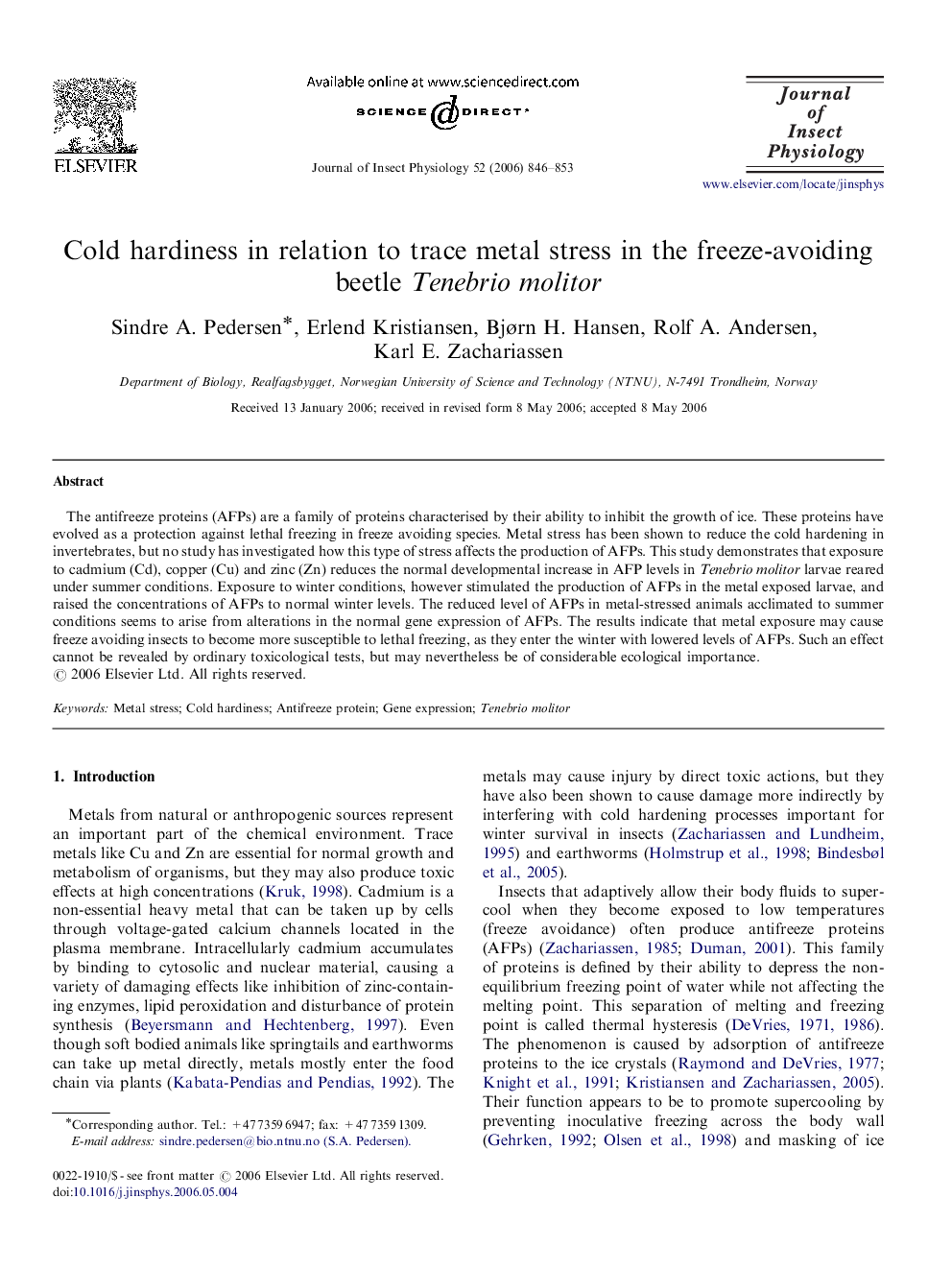| Article ID | Journal | Published Year | Pages | File Type |
|---|---|---|---|---|
| 2841768 | Journal of Insect Physiology | 2006 | 8 Pages |
The antifreeze proteins (AFPs) are a family of proteins characterised by their ability to inhibit the growth of ice. These proteins have evolved as a protection against lethal freezing in freeze avoiding species. Metal stress has been shown to reduce the cold hardening in invertebrates, but no study has investigated how this type of stress affects the production of AFPs. This study demonstrates that exposure to cadmium (Cd), copper (Cu) and zinc (Zn) reduces the normal developmental increase in AFP levels in Tenebrio molitor larvae reared under summer conditions. Exposure to winter conditions, however stimulated the production of AFPs in the metal exposed larvae, and raised the concentrations of AFPs to normal winter levels. The reduced level of AFPs in metal-stressed animals acclimated to summer conditions seems to arise from alterations in the normal gene expression of AFPs. The results indicate that metal exposure may cause freeze avoiding insects to become more susceptible to lethal freezing, as they enter the winter with lowered levels of AFPs. Such an effect cannot be revealed by ordinary toxicological tests, but may nevertheless be of considerable ecological importance.
